With Parliament suspended until 14th October (despite calls for a recall, pending the outcome of this week’s Supreme Court hearing on the lawfulness or otherwise of the prorogation), things are a little quieter in policy circles, although there is likely to be plenty of news from the Labour and Conservative party conferences over the next couple of weeks Labour kick off first, and the Tories next week.
Two things struck us this week – a much bigger interest than usual in the Lib Dem conference, with the national press streaming lovely views of the Bournemouth sea front all week, and the level of blow by blow coverage of the Supreme court hearing. With an election now inevitable, probably before Christmas, and a Lib Dem surge predicted, the first isn’t surprising, and the second is just the latest in the Brexit/Boris soap opera. We are taking a break from making predictions about what will happen on Hallowe’en. It’s all too difficult to call.
OfS urged to act on ‘quality’ matters
Secretary of State Education, Gavin Williamson, has written to the OfS setting out his priorities and giving support for the OfS to use a big stick to push for progress (e.g. on the attainment gap) and curb unpopular practices (e.g. conditional unconditional offers). The letter is a very long wish list (including the kitchen sink) in which the Minister basically asks the OfS to solve all perceived ills in the name of safeguarding the sector’s reputation and encourages them (in bold type) to use their regulatory sharp stick boldly.
The Government press release has the Minister urging the OfS to: “set as high a bar as possible on quality in the sector, so universities are focused on reducing dropout rates and ensuring the best possible value for money. We have to fight to keep the public trust and respect in our world-leading universities and to me that means a relentless focus on quality. That’s why I want the OfS to go even further on this, developing more rigorous and demanding quality requirements, and I give my full backing to boldly use its powers to ensure value for money.”
Excerpts from the letter (use of bold type reflects the letter, a new style approach in these letters):
- Value for money – OfS must attach “the highest priority to this work” and make sure that it is reflected in its forthcoming value for money strategy.
- Exercise your powers boldly to ensure you are an effective regulator. Refers to refusals to register, Suggests using powers where there are “courses and providers that are not delivering value for students”, such as “unacceptable levels of drop-out rates or failure to equip students with qualifications that are recognised and valued by employers, falling short of what is required…under the registration conditions”…
- Develop “even more rigorous and demanding quality requirements”. This means apparently, raising current baseline requirements to ensure that providers deliver successful outcomes for all students. Supports the “OfS intention to revisit the minimum baselines”…
- Be ambitious for the TEF in both scope and timing. That means publishing subject level TEF in 2021 alongside the implementation of a new TEF following the Pearce review. Those hoping that subject level was going to be abandoned will be disappointed, and presumably subject level will also be continued in the “new model” otherwise it would an orphaned measure with weird reputational consequences.
- Consider running a further provider level TEF assessment with results published in 2020. If they are going to do that, having already said everyone’s TEF is extended and we don’t have to, they need to get on with it.
- Refers to the “injudicious use of unconditional offers” and other inducements “that could have an adverse impact on the access and success of students in HE”. Other than the OfS working with the CMA on enforcement of consumer law, no particular action here.
- “Prioritise work supporting students as empowered consumers” – complaints, Ts and Cs, free speech, harassment, etc. The OfS are to review current practice and consider standard contractual templates by Feb 2020. He commends their plans on student protection and urges “action in this area to be as ambitious as possible”
- Focus on part-time and flexible learning, mature learners, “regulatory and funding arrangements surrounding flexible provision” (including how performance metrics support and incentivise flexible provision) – plan by end Nov 2019 and interim report by end of March 2020. Also a Challenge Competition for that.
- Raising awareness of accelerated degrees.
- Monitoring schemes and arrangements for student transfer –institutions to develop a plan for how they will use regulatory powers to promote greater student choice.
- Explore how international students can be better supported and integrated, in line with Global Britain’s efforts to strengthen relationships around the world.
The Sec of State also tasked the OfS Review of Admissions to fully consider a Post Qualification Applications system (note application not admission – so students would apply after their level 3 results).
The TEF stuff has caused a little stir – there is not supposed to be a TEF this year, and the idea of running a subject level TEF in 2021 alongside the development of a new TEF seems like a lot of work to produce a set of outcomes that would not be very useful for anyone, as they would not be comparable with what has gone before or what will come after. As there is no link to fees etc. (yet, we still think that this might re-emerge as one outcome from the Post-18 Review), and students are not using TEF, what is the point? See Wonkhe on this.
Access, Participation & Success
HEPI have published The white elephant in the room: ideas for reducing racial inequality in HE. It consists of a series of essays by national HE figures recommending how to reduce a range of racial inequalities including the attainment gap. Some recommendations:
- All Higher Education Institutions should participate in the Race Equality Charter (56 are members). Funding bodies should consider creating financial incentives behind them doing so – such as making research grants conditional on participation. This proved effective when applications for the gender equality focused Athena SWAN Charter went up 400% after the British Medical Research Council made funding conditional on holding a Silver Athena Swan Award.
Kalwant Bhopal, Professor of Education and Social Justice, University of Birmingham: ‘Work on gender is seen as worthwhile and contributing to an equalities agenda. Race, on the other hand has always been seen as a secondary priority. If higher education is serious about social justice, then race equality must be seen as a priority – linking the Race Equality Charter to research funding would be a good start.’
- Do groundwork to facilitate conversations about race within institutions. Do not underestimate the obstacles faced in doing this and the need for ground rules.
Professor Shân Waring, DVC, London South Bank University: ‘In a room of people talking about race, there will be people confused about which words are okay and which are not. And there will be people in the room who will not join in the conversation, for fear of appearing racist, of being called racist, and perhaps of finding out when it comes down to it, they are racist.’
- Make sure that work done by BME staff and students to tackle racial inequalities is recognised and rewarded. Being an informal mentor to BME students, or giving up time to help with racial equality initiatives, should not become another form of disadvantage.
Amatey Doku, former Vice President for Higher Education at the National Union of Students: ‘Universities are under more pressure than ever to address the 14% attainment gap between BME and white students. Some universities are responding positively, but end up putting a disproportionate burden on BME staff and students. Ultimately it is the institutions themselves that need to fix the problem.”
- Academic faculties should look to their curricula and to other ways of addressing inequalities in their subject, such as Studentships for BME candidates.
Margot Finn, President of the Royal Historical Society: ‘A third of black and minority ethnic historians have faced discrimination or abuse – twice as many as for white historians. That tends to shock white historians, but it has never surprised BME historians with whom that I’ve shared our findings.’
- Diversity practitioners within institutions need senior management diversity champions to rely upon. For instance, inclusion networks should be sure they have the resources and the remit to make changes. (Sanchia Alasia)
- Avoid well-meaning but vague actions which are unlikely to effect change. For instance, implicit bias training should be used in a targeted way to map how biases are playing out in an organisation and to tackle specific issues. (Srabrani Sen)
Access Gap – FE news have published a news article by UCAS highlighting that 20.4% of students from the most disadvantaged communities (polar 4 quintile 1) have a confirmed HE place. The Daily Mail have coverage too.
Brexit and Parliament
Apart from the battle over prorogation and the focus on who said what to the Queen when (which is getting David Cameron as well as Boris Johnson into trouble this week), there is ongoing speculation about what will happen in October.
An interesting YouGov poll revealed that 52% of Leave voters believe the PM should break the law by refusing to ask the EU to extend the Brexit deadline. 28% believe Boris should follow the law despite his ongoing insistence personal campaign that the 31 October exit deadline is non-negotiable, with 21% undecided.
Speaker Predictions – YouGov have also reported that according to a Jan 2019 poll Lindsay Hoyle (current deputy speaker) is the MP’s favourite candidate for the next Speaker of The House of Commons. YouGov state:
He [Lindsay] was the only potential successor nominated by a substantive number of MPs, with a further 41% saying they didn’t know who the next Speaker should be. Hoyle’s fellow Deputy Speaker, the Conservative MP Eleanor Laing, came in a distant second on just 6%, with former Labour deputy leader Harriet Harman in third on 5%. Both have announced that they will run for the Speakership.
4 year study in only 3 years leave to remain – Gavin Williamson tackled the conundrum of EU students who are studying 4 year courses (e.g. in Scotland) but will only be afforded 36 months of temporary leave to remain post Brexit. The Education secretary said “the UK Government would find a solution”.
Education Spending
There is a new Institute for Fiscal Studies report on education spending.
The HE highlights are (our emphasis added):
- Universities currently receive £27,500 per full-time undergraduate student to fund the cost of teaching for the full course of their studies (usually three years). This has fallen by 5% since 2012, but is about 50% higher than at its low point during the mid 1990s.
- While per-student funding is similar today to its early 1990s levels, total resources for teaching undergraduate students have doubled in real terms over that period. This was driven by a near-doubling in student numbers. The nature of that funding has changed significantly, with it now coming primarily through tuition fees rather than through teaching grants.
- The overall cost of the current system is about £17 billion per cohort entering higher education. More than half of the cost is expected to be paid for through graduate contributions (£9.0 billion), particularly from higher-earning graduates. The long-run cost to government is expected to be about £8.0 billion, about £7.4 billion through unrepaid student loans and £700 million in up-front grants.
- The Augar Review proposed cutting fees to £7,500, reintroducing maintenance grants and changing the terms of repayment. This would give policymakers greater control of spending on different subjects, which they have little control over at present due to funding being dominated by tuition fees and to a lack of controls on student numbers. The proposals would reduce repayments amongst higher earners and increase repayments amongst mainly middle earners. But there is no good reason to say the current distribution of repayments and incentives is the ‘correct’ one.
- Labour’s policies of abolishing fees altogether and bringing back maintenance grants would come at a cost to the public finances of just over £6 billion per cohort of full-time students over the long run. This policy would give the government even more control over the distribution of spending on certain subjects or institutions, but would benefit the highest-earning graduates substantially. The policy is significantly cheaper now as a result of the 2017 increase in the repayment threshold on student loans from £21,000 to £25,000.
- Considering part-time students adds approximately another £1 billion to the cost of Labour’s proposals at current student numbers. However, the cost of this policy could increase rapidly if the large decline in part-time student numbers since 2010 were reversed.
Inquiries and Consultations
Click here to view the updated inquiries and consultation tracker. Email us on policy@bournemouth.ac.uk if you’d like to contribute to any of the current inquiries and consultations.
Other news
Graduate Outcomes: The Telegraph has an interactive comparator to accompany their article stating that Oxbridge doesn’t always result in the highest salaries, and that some subjects at ‘lesser known institutions’. Engineering, computer science and business graduates ‘from a wide variety of universities’ are said as ‘punching above their weight’.
Money Mules: The phenomenon of targeting students to act as money mules has been around for several years but the Telegraph has teamed up with Barclays to publish an article warning what to watch out for. Staff working directly with students may be interested in reading about this fraud scam.
Arts & Heritage: The Taking Part 2018/19 survey statistics have been released. It is a continuous face to face household survey of adults and children in England providing reliable national estimates of engagement with the arts, heritage, museums, libraries, digital and social networking. It is a key evidence source for DCMS. In 2018/19:
- 77.4% of adults had engaged with the arts at least once in the last year. The rate of adults engaged in the arts has remained relatively stable since 2005/06.
- 72.4% of adults reported having visited a heritage site in the last 12 months, similar to 2017/18, and an increase from 69.9% in 2005/06.
- 50.2% of adults reported having visited a museum or gallery in the last year. This is similar to 2017/18 and a significant increase from 2005/06 (42.3%).
- 59% of adults reported being aware of UK events to commemorate the Centenary of the First World War. This represents a significant increase from 2017/18 (50.5%).
- 35.2% of adults had used a public library service in the last year for any purpose, similar to 2017/18 and 32.9% had used a public library service in the last year for voluntary work or in their own time, this is similar to 2017/18 but a decrease from 2005/06 (48.2%).
Marketisation: HEPI have a new blog – Changes to student entry quality in a marketised English higher education system. It concludes Universities appear to have been adopting different strategies with many focusing on growth in volume, at the expense of entry points, and a smaller number prioritising quality.
Trading Up: iNews have an interesting article regarding students who undertake a foundation year (and therefore an extra year of debt) with the aim of completing it successfully and transferring (‘upgrading’) to another university. The article carries the tone that this is a risky manoeuvre and Geoff Barton, Association of School and College Leaders, said “we advise students against trying to use foundation years to ‘trade up’.” Instead the advice is that it is cheaper to retake their A levels. The article is interesting because while the Government is very keen that universities support students and proactively facilitate transfers to another institution they didn’t have this in mind – yet the young population seem to have found their own solution. There was also recent negativity stating that universities were capitalising on Foundation Years (because of the fee income received) and that students would be better off taking Access to HE courses. Despite this, foundation courses have increased in popularity in recent years. Perhaps, not least because of the different way in which students are treated and expected to learn between FE and HE. Furthermore, retaking A levels suggests failure, whereas a foundation year allows the individual to move away, be independent, and experience and learn the skills needed to succeed in HE study.
Subscribe!
To subscribe to the weekly policy update simply email policy@bournemouth.ac.uk
JANE FORSTER | SARAH CARTER
Policy Advisor Policy & Public Affairs Officer
Follow: @PolicyBU on Twitter | policy@bournemouth.ac.uk
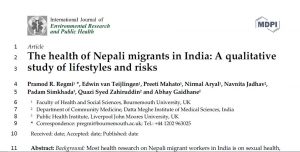


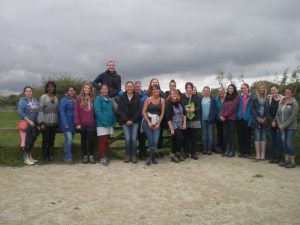
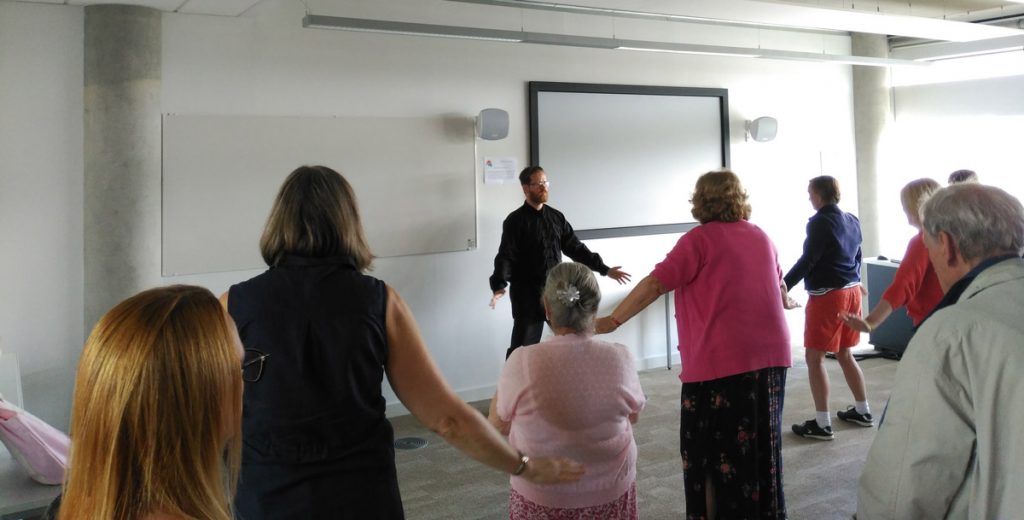



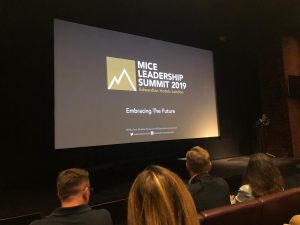
 Writing the impact section in a grant application can be challenging but a strong impact summary and description of the impact pathway/s can make all the difference between getting your research funded or not.
Writing the impact section in a grant application can be challenging but a strong impact summary and description of the impact pathway/s can make all the difference between getting your research funded or not.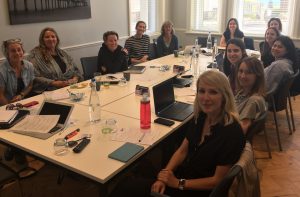











 Dr. Ashraf cited on ‘Modest Fashion’ in The Guardian
Dr. Ashraf cited on ‘Modest Fashion’ in The Guardian NIHR-funded research launches website
NIHR-funded research launches website Academics write for newspaper in Nepal
Academics write for newspaper in Nepal New paper published on disability in women & girls
New paper published on disability in women & girls Global Consortium for Public Health Research 2025
Global Consortium for Public Health Research 2025 MSCA Postdoctoral Fellowships 2025 Call
MSCA Postdoctoral Fellowships 2025 Call ERC Advanced Grant 2025 Webinar
ERC Advanced Grant 2025 Webinar Horizon Europe Work Programme 2025 Published
Horizon Europe Work Programme 2025 Published Horizon Europe 2025 Work Programme pre-Published
Horizon Europe 2025 Work Programme pre-Published Update on UKRO services
Update on UKRO services European research project exploring use of ‘virtual twins’ to better manage metabolic associated fatty liver disease
European research project exploring use of ‘virtual twins’ to better manage metabolic associated fatty liver disease